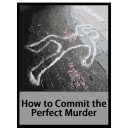Still Life
In this documentary we are taken to Ciudad Juarez, Mexico, an area plagued by violent crimes and a staggering murder rate. Until 2009 it held the top spot as the most dangerous city in the world. As a result of the crime rate the area has also seen a boom in forensic studies, with many scientists working with unidentified bodies to bring recognition and peace to the families of the dead. The film focuses on the work of Dr. Alejandro Hernández Cárdenas, a forensic dentist with a unique method for identifying such mystery corpses.
Working well outside of the realm of dentistry, Dr. Cárdenas uses a chemical formula capable of rehydrating corpses back to a recognizable state, reinvigorating identifying marks such as moles, scars and even tattoos. Many of the bodies Cárdenas works with come from mass graves and are almost, if not totally, mummified from being disposed of in arid desert conditions. Taking twenty years to perfect his technique, Cárdenas began by rehydrating just fingers and worked his way up slowly before advancing to entire bodies.
Using the remains of a hit-and-run victim that happened two years prior, Cárdenas demonstrates the effectiveness of his method by submerging the deceased into a tank he refers to as "the Jacuzzi." He explains that in a few days the fingertips should be regenerated enough to obtain prints and possibly identify the victim, and other distinguishing features such as the shape of the nose, lips, face and ears will begin to present themselves as well. In some cases it may even be possible to create a corpse presentable for an open casket funeral.
It is hard for Cárdenas to understand why more forensic labs across the world aren't making similar efforts. While the process is still patent-pending Cárdenas remains coy about the exact ingredients his rehydration solution is composed of, but insists it is incredibly simple and mostly water. But while Cárdenas has a few American counterparts that use similar techniques on specific body parts, typically fingertips, none have committed their efforts to full corpse rehydration.
The film portrays Cárdenas as a modest, kind-hearted man motivated by a desire to bring closure to the families of those disposed in public graves and gives viewers a peek at what may very well become the next major development in forensic science.
Warning: Contains scenes which some viewers may find disturbing.




Great documentary about one Mexican devoted to showing his countrymen that he is available to identify cadavers where few others are
Noe we can use this method i Egyptian Archeology...in any Archeology actually...interesting.
Outstanding. Ugly work, but they have knowledge and will to do it. Good luck with patent, great potential with this stuff.
This doctor deserves one of the highest recognitions in Medicine!
awesome stuff.
Yes very important work. There are many possible uses for this groundbreaking technology. Peace !!!
I'm sure it could be most useful in identifying those "unknown" soldiers KIA of ALL armed forces, and the relatives thereof.
Remarkable . I hope his patent is not intercepted and in some way screwed by the military industrial complex of USA .
Very interesting Scientist. Driven both from the humanitarian desire to help identify people who have died violently or "the missing" and has the scientific ability to devolpe and deliver a process that brings them to a point where they can be identified.
Hope his patent goes through and he gets the word out to the world for this important forensic tool soon.
wow! remarkable!
This man should be given the highest award for his humanity, work and efforts.